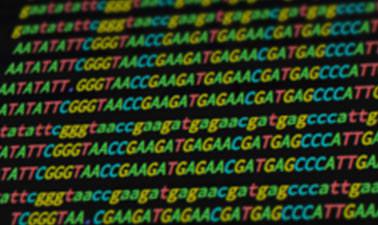- Level Awareness
- Ratings
- Duration 12 hours
- Course by Harvard University
- Total students 4,010 enrolled
-
Offered by

About
We begin with an introduction to the relevant biology, explaining what we measure and why. Then we focus on the two main measurement technologies: next generation sequencing and microarrays. We then move on to describing how raw data and experimental information are imported into R and how we use Bioconductor classes to organize these data, whether generated locally, or harvested from public repositories or institutional archives. Genomic features are generally identified using intervals in genomic coordinates, and highly efficient algorithms for computing with genomic intervals will be examined in detail. Statistical methods for testing gene-centric or pathway-centric hypotheses with genome-scale data are found in packages such as limma, some of these techniques will be illustrated in lectures and labs.
Given the diversity in educational background of our students we have divided the series into seven parts. You can take the entire series or individual courses that interest you. If you are a statistician you should consider skipping the first two or three courses, similarly, if you are biologists you should consider skipping some of the introductory biology lectures. Note that the statistics and programming aspects of the class ramp up in difficulty relatively quickly across the first three courses. By the third course will be teaching advanced statistical concepts such as hierarchical models and by the fourth advanced software engineering skills, such as parallel computing and reproducible research concepts.
These courses make up two Professional Certificates and are self-paced:
Data Analysis for Life Sciences:
- PH525.1x: Statistics and R for the Life Sciences
- PH525.2x: Introduction to Linear Models and Matrix Algebra
- PH525.3x: Statistical Inference and Modeling for High-throughput Experiments
- PH525.4x: High-Dimensional Data Analysis
Genomics Data Analysis:
- PH525.5x: Introduction to Bioconductor
- PH525.6x: Case Studies in Functional Genomics
- PH525.7x: Advanced Bioconductor
This class was supported in part by NIH grant R25GM114818.
HarvardX requires individuals who enroll in its courses on edX to abide by the terms of the edX honor code. HarvardX will take appropriate corrective action in response to violations of the edX honor code, which may include dismissal from the HarvardX course; revocation of any certificates received for the HarvardX course; or other remedies as circumstances warrant. No refunds will be issued in the case of corrective action for such violations. Enrollees who are taking HarvardX courses as part of another program will also be governed by the academic policies of those programs.
HarvardX pursues the science of learning. By registering as an online learner in an HX course, you will also participate in research about learning. Read our research statement to learn more.
Harvard University and HarvardX are committed to maintaining a safe and healthy educational and work environment in which no member of the community is excluded from participation in, denied the benefits of, or subjected to discrimination or harassment in our program. All members of the HarvardX community are expected to abide by Harvard policies on nondiscrimination, including sexual harassment, and the edX Terms of Service. If you have any questions or concerns, please contact harvardx@harvard.edu and/or report your experience through the edX contact form.
What you will learn
- What we measure with high-throughput technologies and why
- Introduction to high-throughput technologies
- Next Generation Sequencing
- Microarrays
- Preprocessing and Normalization
- The Bioconductor Genomic Ranges Utilities
- Genomic Annotation
Skills you learn
- Matrix Algebra
- Microarrays
- Data Analysis
- Next-Generation Sequencing
- Biology
- Software Engineering
- Life Sciences
- Functional Genomics
- Linear Model
- Data Warehousing
- Statistics
- Statistical Inference
- Algorithms
- Bioconductor (Bioinformatics Software)
- Statistical Methods
- DNA Sequencing
- R (Programming Language)
Auto Summary
"Introduction to Bioconductor" is a comprehensive course offered under the domain of IT & Computer Science, focusing on the integration of biological data with statistical and computational tools using Bioconductor. The course is designed and instructed by experts at HarvardX and is available on edX. This self-paced course delves into the biology of what we measure and why, with an emphasis on next-generation sequencing and microarrays. Learners will be guided on importing raw data and experimental information into R, utilizing Bioconductor classes for data organization from various sources. The curriculum addresses the identification of genomic features using intervals in genomic coordinates and explores efficient algorithms for genomic interval computation. Additionally, statistical methods for testing gene-centric or pathway-centric hypotheses with genome-scale data are covered, featuring packages like limma. Structured into seven segments, this course is suitable for a diverse audience, including statisticians who may skip the initial parts and biologists who may bypass some introductory biology lectures. The content complexity escalates, introducing advanced statistical concepts and software engineering skills by the third and fourth segments, respectively. The course forms part of two Professional Certificates: "Data Analysis for Life Sciences" and "Genomics Data Analysis," comprising the following modules: **Data Analysis for Life Sciences:** 1. PH525.1x: [Statistics and R for the Life Sciences](https://www.edx.org/course/statistics-and-r) 2. PH525.2x: [Introduction to Linear Models and Matrix Algebra](https://www.edx.org/course/introduction-to-linear-models-and-matrix-algebra) 3. PH525.3x: [Statistical Inference and Modeling for High-throughput Experiments](https://www.edx.org/course/statistical-inference-and-modeling-for-high-throug) 4. PH525.4x: [High-Dimensional Data Analysis](https://www.edx.org/course/high-dimensional-data-analysis) **Genomics Data Analysis:** 1. PH525.5x: [Introduction to Bioconductor](https://www.edx.org/course/introduction-to-bioconductor-annotation-and-analys) 2. PH525.6x: [Case Studies in Functional Genomics](https://www.edx.org/course/case-studies-in-functional-genomics) 3. PH525.7x: [Advanced Bioconductor](https://www.edx.org/course/advanced-bioconductor) The entire series spans approximately 12 weeks, and learners can choose to enroll in the full series or individual courses based on their interests. The course is ideal for both beginners and advanced learners aiming to enhance their skills in data analysis and genomics. HarvardX encourages adherence to the edX honor code and participation in learning research. The institution is committed to a nondiscriminatory and harassment-free educational environment. Embark on this educational journey to master the integration of biological data with statistical and computational techniques through Bioconductor, and elevate your expertise in the evolving field of genomics.

Rafael Irizarry

Michael Love

Vincent Carey


